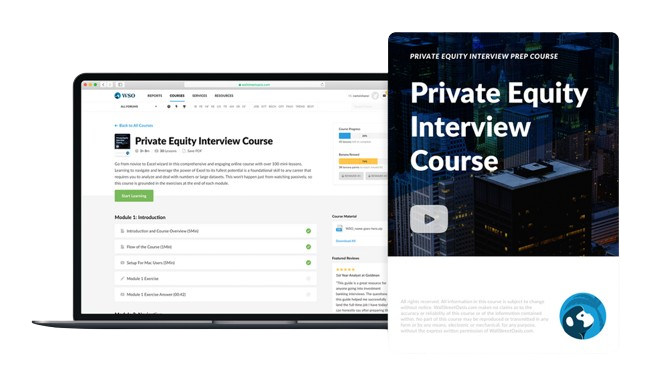Escrowed Shares
A corporate transaction has been completed or a certain amount of time.
What Are Escrowed Shares?
Escrowed shares are shares or securities kept in a particular account called an escrow account until a corporate transaction has been completed or a certain amount of time has elapsed.
The primary motivation behind this is that these securities cannot be sold before the predetermined transaction has taken place.
Until legally allowed to, neither of the three parties, i.e., the seller of the shares, the buyer of the securities, and the escrow agent, is permitted to use the shares.
This means that until the terms of the transaction are completed, neither the buyer nor the seller of the transaction can use or get ownership of the shares.
This protects and safeguards all the parties to the transaction too. So, for example, the sellers don’t have to give ownership of the securities until the price agreed upon has been deposited. At the same time, the buyer is protected as well, as he has been assured that the shares have been delivered.
Escrowed shares may be used for mergers and acquisitions, bankruptcy, company reorganization, or employee compensation wherein either party wants to protect themselves from the risks of non-payment or failure to deliver the agreed-upon goods, which in the case of escrowed shares, are securities.
Key Takeaways
- Shares or securities held in an escrow account until a business transaction is complete or a predetermined time has passed are known as escrowed shares.
- These cannot be sold before the scheduled transaction has occurred. Neither of the three parties—the parties to the trade and the escrow agent—may use the shares unless it is permitted by law to do so.
- This protects all sides because the sellers are free to withhold ownership until the money has been deposited, and the buyer is secure knowing the shares have been delivered.
- They may be in situations of mergers and acquisitions, bankruptcy, company reorganization of a company, or employee compensation.
Understanding escrowed shares
First, to understand the concept of escrowed shares, it is essential to know what escrow is. It is the process whereby funds or certain assets remain with an agent called an escrow agent until all the contractual agreements in a transaction are completed.
This means that until the transaction is completed, neither party has access to the money or the asset. Instead, they are left in possession of a neutral third party called an escrow agent who releases the funds and the assets when the transaction terms are completed.
This reduces the risk for both parties as they do not have to pursue each other for funds. In addition, if the transaction isn’t completed, the funds will not be released, ensuring that the paying party has already paid the funds to the agent.
Escrowed shares are when equity shares are held in an escrow or holding account until specific contractual agreements or transactions have been fulfilled.
Thus, if the transaction falls through, the buying party would not get ownership of the shares, while the selling party would not receive the payment.
The shareholder frequently owns a stock that is issued in escrow. However, the shareholder might be unable to sell the store right away or only have restricted options.
Example Of An Escrow Shares
In countries like India, the minimum subscription for an IPO is 90% of the shares issued. The minimum quantity for countries like the USA is 100 shares under normal circumstances, but those quantities may vary from issue to issue.
If less than the minimum limit applies for the claims, the company can’t allot the shares and must return the amount.
Thus, if company XYZ Ltd. issues 100,000 shares, all the money it receives from the IPO is deposited in an escrow account, and the securities are printed with the escrow agent.
If they receive applications for more than 90% of the issue, for example, 95,000 shares, the transaction terms will be met, and the investors will receive the shares allotted to them while the company gets the money.
In case less than 90% of the shares are applied, for example, only 80,000 shares, the conditions of the transactions aren’t fulfilled, the securities aren’t transferred, and the money is transferred back to the shareholders.
When are shares escrowed?
Shares are escrowed whenever either party involved in the transaction wants protection from the risks of non-payment or non-delivery of claims. They can range from mergers to reconstructions.
1. Mergers and Acquisitions:
In the case of a takeover, the target company may request that a particular proportion, typically 10 to 15% shares, be kept in escrow to protect against the non-performance of payment by the acquirer.
Thus, if the acquirer doesn’t pay the agreed-upon amount, they do not get ownership of the shares. Similarly, funds or securities can also be kept in escrow until the government authorities approve the transaction. Only in case of approval does the transfer of the guards take place.
Additionally, the purchase price may need to be adjusted during the long merger or acquisition process. Due to this, keeping the securities in escrow can allow for changes according to the variance in cost.
2. Reorganization or Bankruptcy
A company may have to suspend its activities if it files for bankruptcy or is awaiting some approval during the reorganization of the company. During such a scenario, the company shares are converted to escrowed shares.
The escrowed shares will be converted to the original equity if any equity remains after bankruptcy or reorganization.
3. Employee Compensation
Often the company issues the shares of the company as bonuses or compensation for the employees. The claims may also be published below the market price called the Employee Stock Option Plan (ESOP).
In such scenarios, there usually is a vesting period, i.e., a specified time the employees must wait before they get ownership of the shares and can sell their securities. These shares are called restricted shares.
In such a case, the shares are kept in an escrow account from the granting date, i.e., the date the shares are allotted to the employees, until the vesting date. The claims are released to the employees when the specified time has elapsed.
This is done to give the employees an additional incentive to continue working with the company. If they do, they can get ownership of the shares. If they don’t, the terms of the agreement aren’t met, and the escrow agent releases them back to the company.
In such situations, the shares may be kept in escrow for 1-3 years before the employees cash them out.
Benefits Of Escrowed Shares
Shares that are escrowed are intended to safeguard both parties from risks in a transaction. While the deal is being executed, the escrow agent ensures that allocations are protected and that all parties adhere to their contractual commitments.
Losses brought on by market swings can also be avoided by keeping shares in escrow. For example, in mergers and acquisitions (M&A), the buyer may recover the escrowed shares to reduce losses if the seller violates the contract.
Similarly, the seller may keep the escrowed shares if the buyer violates the contract terms; if the buyer does not pay the required amount, the seller will continue to be the owner.
Additionally, the escrowed shares are accessible to facilitate the sale if the buyer requires additional funds to fulfill the contract. This access keeps the buyer from interfering with business as usual and harming shareholders.
Similarly, in the event of changes in terms of the transaction due to fluctuations in prices, if the escrow agent is notified, the parties are protected from risks.
In situations like reorganization, acquisitions, and employee compensation, wherein there are risks for both parties, if the opposing party doesn’t deliver on their side of the agreement, like paying a certain sum, escrow can protect them from losses.
Steps in the process
The following are the various steps in which the parties to the transaction must complete the escrow process.
- The buyer and seller enter into a transaction to buy and sell shares. This can be in the case of an acquisition, where the acquiring company is buying the claims of the target company.
- Both parties agree on specific terms like the time of the contract, the price of the securities, the number of deposits, etc.
- To safeguard the parties from risk, the seller of the shares or the target company transfers the securities to the escrow agent. The agent reviews this and notify the buyer of the securities.
- After being notified, the buyer transfers the amount to the escrow agent. The agent then checks that all the terms and conditions have been met.
- After doing so, the ownership of the securities is given to the buyer, whereas the funds are released to the seller of the securities.
- If the terms are not satisfied, the agreement falls through, and the shares are released back to the seller so that neither party faces losses due to the fault of the other.
real-world examples Of Escrowed Shares
An example of how escrowed shares are used can be seen in the case of ADVENTRX Pharmaceuticals. The company is a biopharmaceutical research and development company focused on commercializing proprietary products to treat cancer and infectious diseases.
In 2009, to gain FDA approval for its chemotherapy, the agent sold 5% of its preference shares to an institutional investor. In addition, 25% of the claims were put in an escrow account to be released over time.
This protected both the investor and ADVENTRIX too. It ensured that the shares would not be given to the investor without payment. It also helped in protecting against volatilities in the share price.
Similarly, DAX Partners LP, an entity tied to the US-based investment firm Trinity Management LLP, bought the Indian subsidiary of the US-based software company Selectica Inc. Dax Partners into a share purchase agreement buying shares worth over $3 million.
One million of these were kept in escrow and were released to the seller only on the completion of certain agreed-upon contractual obligations.
Thus, this protected both parties from risk; if DAX partners hadn’t made the payment, the transaction wouldn’t have been completed. Thus DAX Partners wouldn’t have gotten ownership of the shares, and Selenica Inc. would have been protected.
At the same time, DAX partners would have been assured that they would have gotten ownership of the shares as the shares would have already been delivered to the escrow agent,
Researched and authored by Soumil De | LinkedIn
Free Resources
To continue learning and advancing your career, check out these additional helpful WSO resources:





or Want to Sign up with your social account?